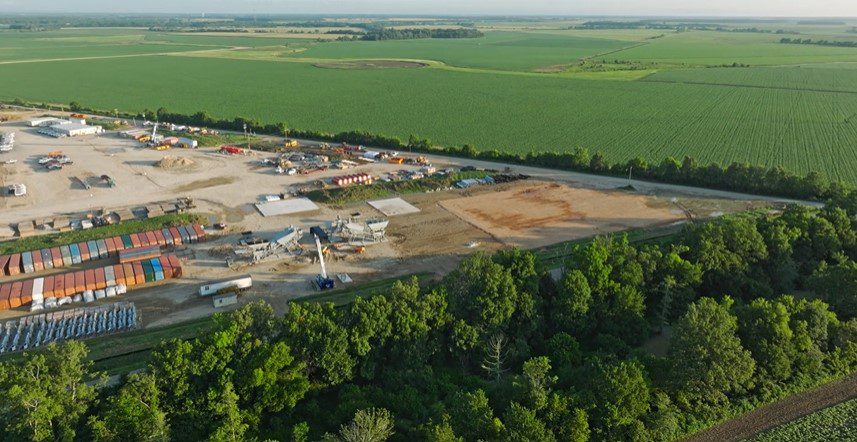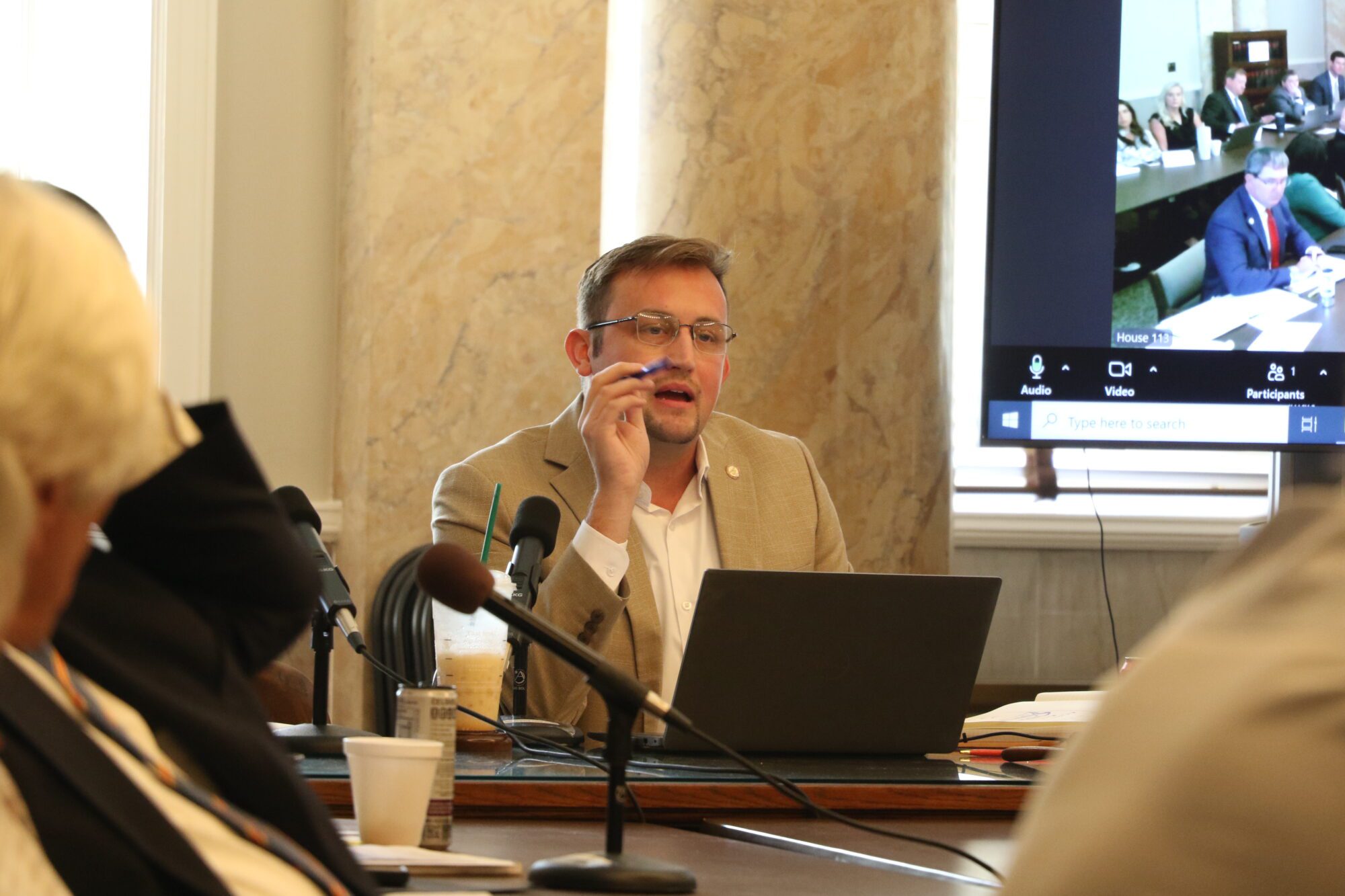
AES and Amazon have partnered in the Mississippi Delta Wind Farm in Tunica. Photo from AES shows the facility under construction.
The winds from the Mississippi Delta will be used to power 41 turbines on a 14,000-acre site while supporting agricultural operations in the new project from Amazon and AES.
Amazon and AES have partnered to bring the state’s first utility-scale wind farm to Mississippi. The companies announced the project last week.
The new facility under construction in Tunica will include 41 wind turbines powered by winds from the Mississippi Delta. It will be a dual-use operation on the 14,000-acre site that is privately-held agricultural land. The land will continue to be used for farming rice, soybeans, corn, and wheat under and around the turbines.
AES, the developer and owner-operator, touts that the project helps the landowner diversify their income while keeping land in the family.
“This ability to co-locate energy and agricultural production amplifies the positive impacts of our clean energy projects,” the company said.
According to AES, the project is expected to generate 184.5 MW of wind energy – enough energy to power nearly 80,000 Mississippi homes annually. It will bring “tens of millions of dollars in consistent tax revenue to the county and school district.” The company says the project is already generating local economic benefits, with dozens of people moving to the area to support the construction.
“Several local contractors and suppliers have already been hired, and the project is expected to create nearly 300 jobs during peak construction,” according to AES.
In partnering with AES in the Mississippi Delta Wind Farm, Amazon, the global retail supplier, is expanding its renewable energy footprint. The company reports that it currently has more than 400 renewable energy projects worldwide, including new projects in Mississippi, Kentucky, Arkansas, and Missouri.
“Amazon is on a path to powering our operations with 100% renewable energy by 2025, and we want to ensure the local communities where our customers live and work are also benefiting from the solar and wind projects that we support,” said Charley Daitch, director of Energy and Water Strategy at Amazon Web Services (AWS) in a statement. “These energy projects are helping provide clean energy to local grids, create jobs, support local businesses and farmers, and boost the rural tax base in the southeast, which are all part of Amazon’s commitment to become a more sustainable company.”











